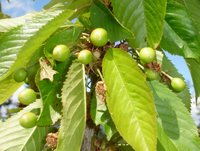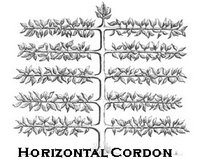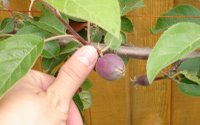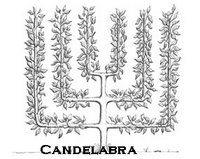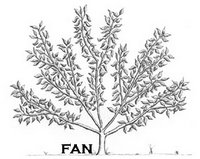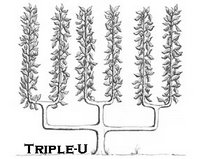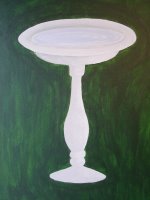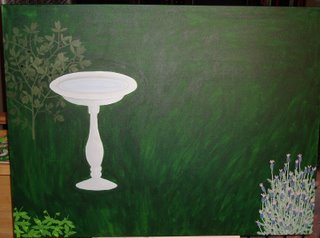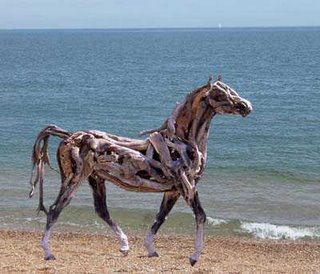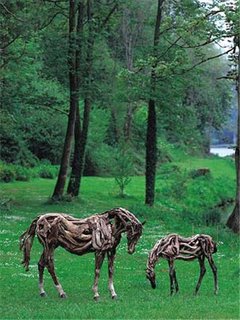I am struggling with what to put in the background / top of the painting, which I've discovered, is easier to start with, and paint my way foreward. I find it easier to visualize the front / bottom of the painting. Anyhow, I was thinking of a rhododendron, but most of those are spring-blooming, and I wanted something summer-blooming to go with the other flowers in my canvas "garden". So I decided on a hydrangea.
The hydrangea turned out to be pretty fun to paint, and the results were pretty quick and rewarding. I finished both the leaves (although I see now that they are a bit sparse, I should have crowded them a bit more), and the flowers in the one night.
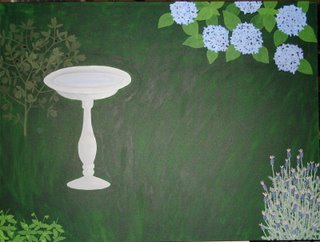 The photos are a closeup of the hydrangea flower (sorry, I'm have difficulties uploading the image), as well as the painting in its current state. I am visualizing some orange tiger lilies in the left side, in front of the tree peony. In front of that, a variegated hosta and / or clump of coreopsis verticillata (threadleaf coreopsis). I am imagining a red monarda on the right side edge, with some white or yellow daisies between it and the lavandula stoechas (spanish lavender).
The photos are a closeup of the hydrangea flower (sorry, I'm have difficulties uploading the image), as well as the painting in its current state. I am visualizing some orange tiger lilies in the left side, in front of the tree peony. In front of that, a variegated hosta and / or clump of coreopsis verticillata (threadleaf coreopsis). I am imagining a red monarda on the right side edge, with some white or yellow daisies between it and the lavandula stoechas (spanish lavender).I also want to fit in these favourites from my garden : echinacea purpurea (purple coneflower), echinops ritro (globe thistle), lupinus polyphyllus (russell's lupine), geranium "Victor Reiter", osteospermum and alliums (even the common allium schoenoprasum or chives, which are absolutely outstanding in my garden this year). Since I am painting to a larger scale than my original paper layout, it will be tricky to fit everything into the painting. Perhaps I may end up painting a second one to fit them all in!


